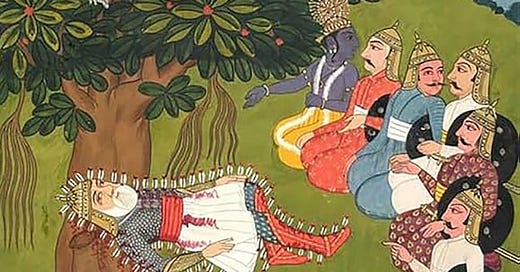How closely connected are yoga and politics? Many people today try to keep them apart, but an ancient tradition sees yoga as politics. Although its theories might be distinct from yogic philosophies and mind-body disciplines, they’re nonetheless part of a broader understanding of what yoga means.
A new book called The Yoga of Power, by Sunila Kalé and Christian Lee Novetzke, unpacks the implications. Initially inspired by events such as a U.S. court case about whether yoga in schools was religious and the Hindu nationalist promotion of “yoga day”, their work studies texts from the Ṛg Veda onwards, showing how yoga describes the exertion of control. Together, we discuss (among other topics):
The use of yoga-kṣema to refer to people’s welfare
What links good governance to personal self-discipline
How yogic ideas inspired anti-colonial political resistance
Why texts tell haṭha yogis to find well-governed lands
Whether sun salutations are yogic or martial arts
Listen to this episode with a 7-day free trial
Subscribe to Ancient Futures to listen to this post and get 7 days of free access to the full post archives.













